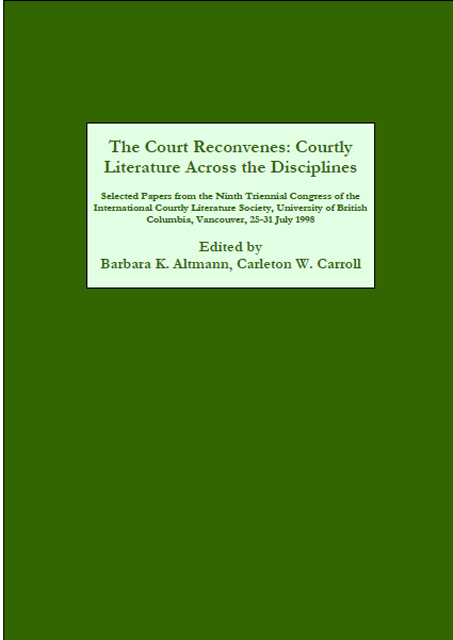 The Court Reconvenes
The Court Reconvenes Eleonora d’Este and the Heroines of Boiardo’s Orlando innamorato: Challenging Gender Stereotypes at the Ferrara Court
Published online by Cambridge University Press: 31 March 2023
Summary
The late Quattrocento Italian humanist Bartolommeo Goggio presented his treatise De laudibus mulierum to Eleonora d’Este (Duchess of Ferrara, 1473–94) in 1487. The treatise recounted the actions and lives of worthy women who were, according to Goggio, superior to men in every respect. A treatise written to illustrate the equality of women to men would have been remarkable enough in the Quattrocento, but Goggio asserts the superiority of women. The one aspect of the work that is not surprising is that it came out of the Este court in Ferrara whose duchess Eleonora was daughter of Isabella di Chiaramonte and the Aragonese Ferdinand of Naples, wife of Duke Ercole I and mother to a number of offspring who would be essential in the shaping of the Cinquecento. Eleonora, however, went beyond the traditionally expected female role of subservient daughter, supportive wife and doting mother. It is my contention that Eleonora's very presence at the Este court helped redefine the role of the woman – not only in history (one need look no farther than her influential daughter, Isabella), but in literature as well. This article examines, first, a few significant facets of Eleonora's courtly life that helped shape the image of the woman in fifteenth-century Ferrara, and, second, parallels between the historical Eleonora and one of the fictional heroines in Matteo Maria Boiardo's Ferrarese epic, the Orlando innamorato.
Eleonora was neither a virgin temptress like Boiardo's Angelica nor a warrior queen like his Marfisa, but she represents all that is wise and powerful in the Boiardo heroines on a decidedly human and everyday level. Characterization of the woman in the Orlando innamorato, the epic written by an Este courtier specifically for the Este court, benefited from the strong-willed duchess at the court's center. She was not considered to be a witch, like so many strong, literary women of the time, nor did she disguise her feminine characteristics and don armor in order to duel against Ercole's enemies, another common literary device. However, she took Ercole's place during his frequent absences from Ferrara, and she did single-handedly govern the city while it was under siege and in danger of falling during the Ferrara-Venice war.
- Type
- Chapter
- Information
- The Court ReconvenesCourtly Literature across the Disciplines: Selected Papers from the Ninth Triennial Congress of the International Courtly Literature Society, University of British Columbia, Vancouver, 25-31 July 1998, pp. 285 - 294Publisher: Boydell & BrewerPrint publication year: 2002


